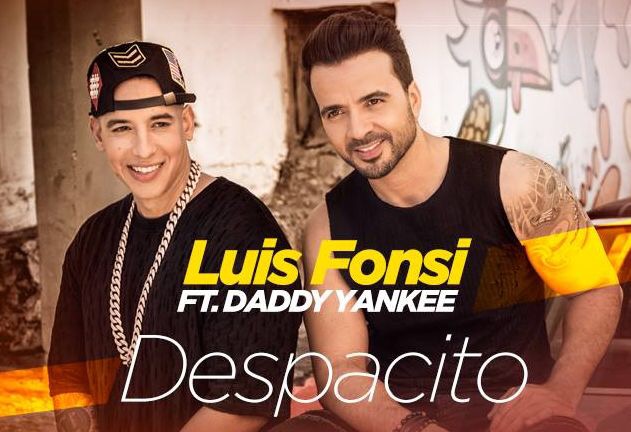Subiendo Slowly
Spanish music makes rise in media
Photo by TUC Magazine
August 4, 2017
“Despacito, quiero respirar tu cuello despacito…”
Whether you’re in China, India, Romania, or even in a blue Ford Focus heading through downtown New York City, you have heard these lyrics before. Whether it be on the little radio you have set up in your kitchen to dance along to as you cook, or the outro to a commercial as you wait for the news to come back on, you have heard these lyrics before.
“Despacito,” written by Luis Fonsi, Daddy Yankee and Erika Ender has become one of the most popular songs worldwide. The song was released January 12, 2017, and months later, in July, “Despacito” became the most streamed song of all time, with an impressive number of 4.6 billion streams.
Between January and July, the song has had immense success. “Despacito,” like the “Macarena,” hit the Billboard Hot 100, which makes it the second song in Spanish to be this popular since 1996. Quickly after that, “Despacito” became one of the bestselling Latin hits in America.
“I think these types of songs have skyrocketed to the top of the charts because they have such a catchy chorus that never gets old,” junior Juan Peña said. “They’re fun to sing and they get so much attention because most Americans usually don’t listen to Spanish spoken music.”
“Despacito,” had success on it’s own, but one of the main factors to the song’s great triumph are all the remixed versions which contribute to their universal appeal. Some of which include, Justin Bieber, Major Lazer, various DJs and Victor Manuelle.
“The song featured Justin Bieber in a remix which brought in more people to want to listen and hear the original song,” sophomore Lucy Castaneda said.
Not only is this song creating such a prosperous platform for the artists but the song has also sparked an interest in people around the world to check out Spanish music.
Sometimes younger Spanish generations tend to lose their interest for their roots, their music, their traditions and even their culture, but with more Spanish influences, the millennial era can have a new way of connecting to their heritage.
“Even though Spanish music isn’t on the top of my favorite list, I still enjoy listening to songs like Ginza by J Balvin, or Chantaje by Maluma,” Peña said.”They give me a taste of my own culture and I’m thankful to be apart of it.”
For Hispanics, Latinos and other Spanish races, songs like these are what make their cultures and traditions come together.
“Some of my favorite Spanish songs have to be Reggaetón Lento (Bailemos) by CNCO, Me Enamoré by Shakira, and Felices Los 4 by Maluma,” Castaneda said. “The impact I feel that these songs would have on my culture and traditions are that they would make quinceñeras, weddings, and parties a lot more entertaining than they already are by bringing a lot more younger groups of people together.”















